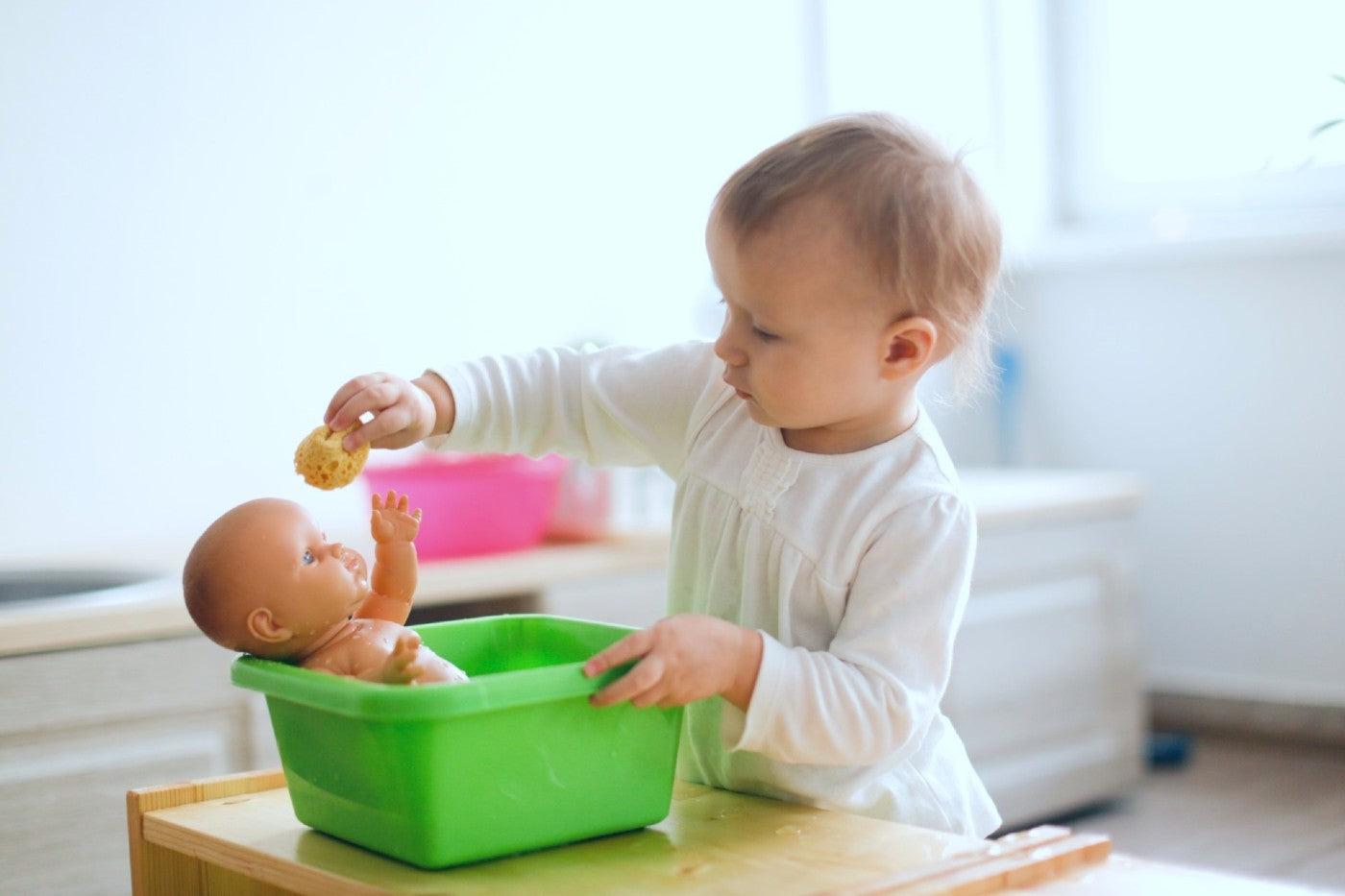TODDLER
16-Month-Old Milestones for Your Baby
Your 16-month-old loves challenging themself—and this might feel like a challenge for you, too!

Written by
Happiest Baby Staff

Your 16-month-old loves challenging themself by climbing, stacking, organizing, and more. This might feel like a challenge for you, too—especially because your toddler may understand limits…and then blatantly disregard them! This is a developmentally appropriate part of developing independence and exerting authority over themselves.
You don’t have to be locked in a power struggle, though: There is some common ground to be found between your need to set limits (for safety and otherwise) and your toddler’s desire for some autonomy. To restore the peace, it can help to think of yourself as an ambassador for your child. Like an international diplomat, your objective should be to communicate with respect and speak in a way your toddler’s young brain can understand (aka, toddler-ese).
Your 16 Month-Old’s Developmental Milestones
At 16 months, your toddler should have a pretty good sense of how common objects are used: Cups are for drinking, crayons are for coloring, shoes are for feet, and so on. But that doesn’t mean they’ve quite mastered performing these skills. Give them the chance to practice as often as possible. Although getting out the door or through a meal may be less efficient, you and your child will reap the rewards when they are able to confidently handle functional life skills.
Language Development and Cognition at 16 Months
By 16 months old, the average toddler has about 10 words in their vocabulary. But, as you know by now after 16 months of parenting, there is almost always a big, healthy spectrum around what’s “average,” and a 16 month old development checklist can’t capture the nuance. If you are concerned with your child’s verbal communication skills, here’s what to know.
- You can count a word from your child if you understand it, not only if it’s perfectly enunciated. Be on the listen for sounds they use with consistency to label a person, place, or thing.
- Language delays affect about one in five kids. Research shows that boys are more likely to be late talkers than girls.
16-Month-Old Speech Delay: When to Worry
There are numerous causes of speech delays, including trouble producing speech sounds, hearing loss, autism, neurological problems, and more. At this point, limited vocabulary isn’t necessarily a red flag. But, if you have other concerns about your child’s behaviors or health, it’s worth discussing the speech delay with your pediatrician to explore if there’s a link. Learn more about speech delays.
Behavioral Development for a 16-Month-Old
With new developments on the mobility and problem-solving front, your 16-month-old toddler may be using their “powers” in ways that seem to test the limits. For example, say you only offer a cup of milk to your 16-month-old at dinner time, but they would much rather go back to sipping it around the clock. At this point, you may see them try to pull the milk carton off the low refrigerator shelf when the door is open—and then cry if they don’t get what they want.
This is par for the course with toddlerhood. For all their new, incredible cognitive processing skills, they still lag behind big kids when it comes to self-control. Instead, they want what they want…when they want it! As a parent helping a toddler navigate this, the big question can be how is it possible to teach patience?!
Try this patience-stretching tactic: Imagine you’re in the middle of something when your child interrupts to ask for their special lovey. Acknowledge their request and stand up as if you’re ready to help look. But then stop short and say, “Wait! I need to finish this. One second!” After another moment, start the search for your child’s lovey in earnest and praise them for waiting. Then gradually extend the time you ask them to be patient.
Sleep for 16-Month-Olds
What’s the source of all your toddler’s energy? A lot of it comes naturally—especially when they are fueled with good food and plenty of sleep. By 16 months, most toddlers are down to just one nap a day. That offers more freedom and flexibility with your daily routine, but makes that one nap even more important to really nail! Make this block of time “off-limits,” except for rare circumstances like travel days. By giving your child the chance to nap in their normal environment, whether that’s their crib at home or daycare, they can get the rest they need. (And, bonus, they should be more likely to hang onto that precious nap time for another year, two, or more.) Of course, even if your toddler’s naps are in flux, it’s important to stick to your nightly bedtime routine.
Feeding Your 16-Month-Old Toddler
Well-balanced meals are also important for nourishing your child’s nearly constant state of motion. Limit snacks, sugary treats, and saturated fats. Keep offering vegetables, protein, and fruit—even if your tyke doesn’t seem to be a fan. It’s worth mentioning that you should try to set a good example with what’s on your plate!
16-Month-Old Height and Weight
At 16 months, the average girl is about 30.9 inches (78.6 cm) tall and weighs around 21.6 pounds (9.8 kg). Boys at 16 months old average 31.6 inches (80.2 cm) and 23.1 pounds (10.5 kg).
16-Month-Old Milestones: Final Thoughts
Needless to say, 16 months is an exciting (if not a little bit exhausting) time! However, if you have any questions as you watch your 16-month-old grow and explore, don’t hesitate to reach out to a physician! At this age, there’s a whole range of typical development…and your care providers are there to address any of your concerns.
< Your 15-Month-Old Baby | Your 17-Month-Old Baby >
***
REFERENCES
- The Happiest Toddler on the Block, Dr. Harvey Karp, MD
- University of Michigan Health C.S. Mott Children’s Hospital, Speech and Language Development
- American Academy of Pediatrics, Language Delays in Toddlers: Information for Parents
- Sex Differences in Early Communication Development: Behavioral and Neurobiological Indicators of More Vulnerable Communication System Development in Boys, Croatian Medical Journal, Apr 2019
- World Health Organization: Child Growth Standards, Length/Height for Age
- World Health Organization: Child Growth Standards, Weight for Age
Disclaimer: The information on our site is NOT medical advice for any specific person or condition. It is only meant as general information. If you have any medical questions and concerns about your child or yourself, please contact your health provider.
SHARE THIS ARTICLE
MOST LOVED
Sleepytime Sidekicks












